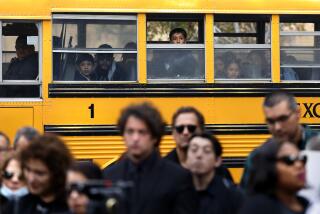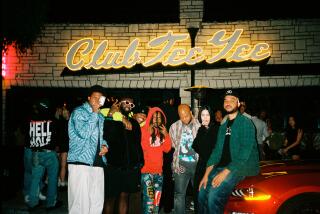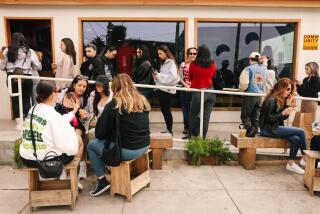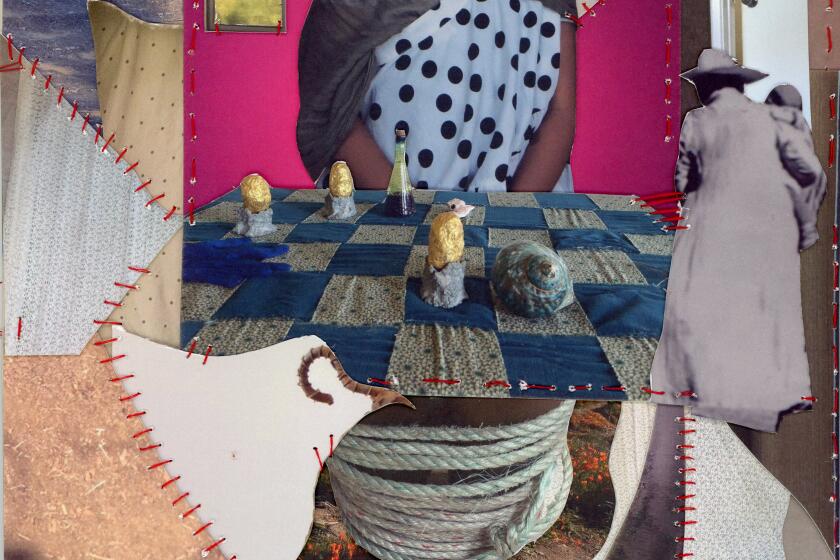Disposable cameras: A ’90s favorite makes a comeback among millennials and Gen Z
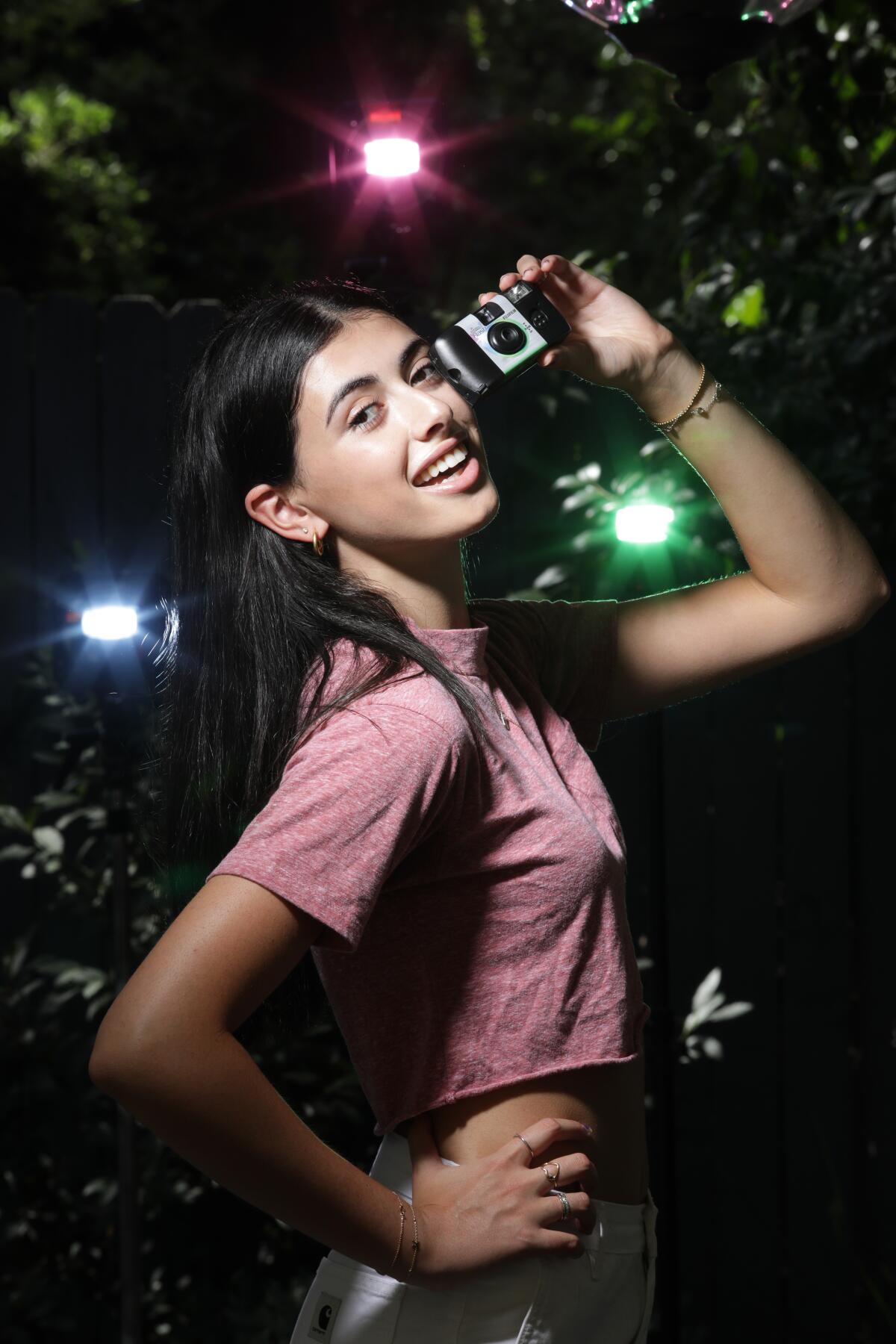
Forget taking countless iPhone shots of the same pose and endlessly enhancing them with filters and photo editing apps. These days, many Gen Zs and young millennials are into grainy, light-streaked photos with overly saturated color snapped on an old-school disposable camera.
“They look more authentic,” said Kate Rozansky, 18, of Encino, Calif., “I love how vibrant the colors are. It reminds me of photos I’ve seen that my parents used to take.”
Justine Riddle, 18, of Burbank, rarely leaves home without a Fujifilm QuickSnap tucked into her black Dickies minibackpack. During her just-wrapped senior year at Campbell Hall School in Studio City, Riddle took more than 600 photos using disposable cameras.
Top-sellers QuickSnap and Kodak’s FunSaver are loaded with 27 exposures. Riddle says that, whether at the beach or prom or just hanging out, the finite number of photos “lets you capture the imperfect in a seemingly perfect way with just one shot. I use my disposable when I want to capture my friends in their most candid, spontaneous moments.”
Celebrities and social media influencers are also channeling the ’90s. Top model Gigi Hadid was seen snapping pictures with a disposable camera at a Paris fashion show last month, while fellow “it”-girls Cindy Bruna and Adesuwa Aighewi were spotted doing the same at the 2019 CFDA Fashion Awards in Brooklyn, N.Y.
Digital media star David Dobrik, 22, whose YouTube channel has more than 13 million subscribers, launched an Instagram account in mid-June, davidsdisposables, filled exclusively with disposable photos featuring his posse of popular young YouTubers and Instagram models. Dobrik keeps a bar cart stocked with Fujifilm QuickSnaps in his Studio City home so he’s prepared when they stop by.
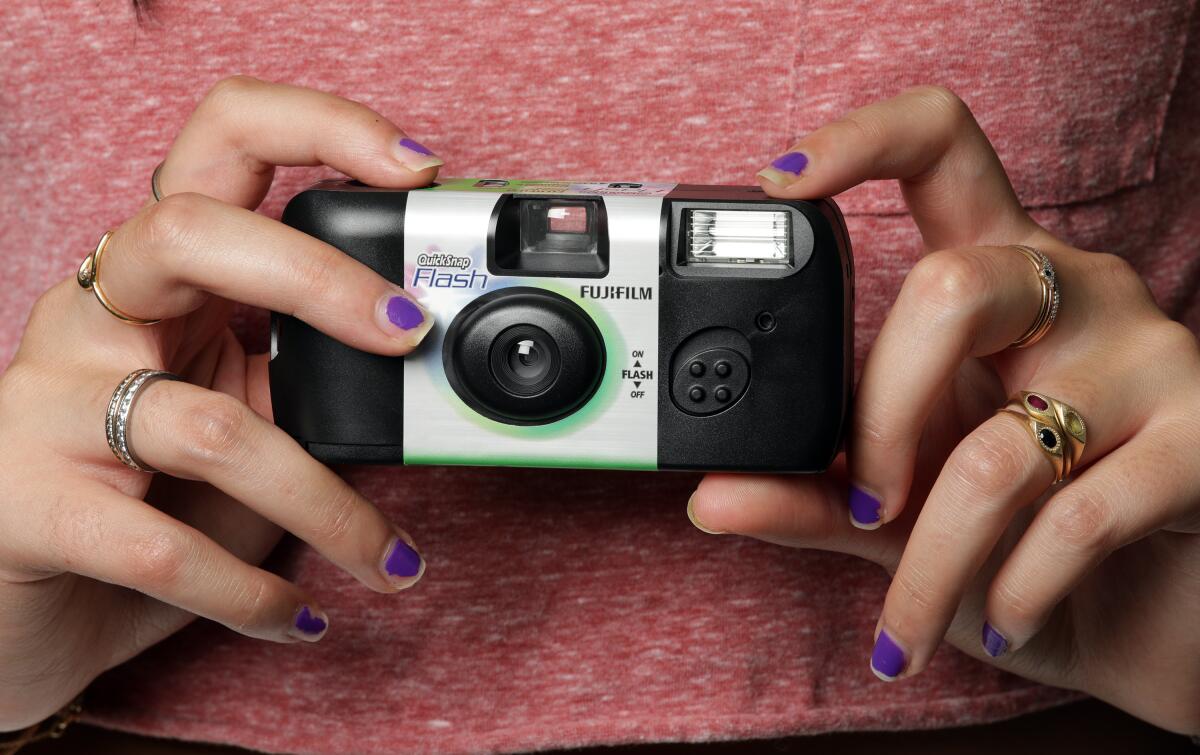
Alex Yi, owner of the 35m Pro Photo Lab in Sherman Oaks, first noticed an uptick in disposable camera processing orders two years ago and says it has continued to grow. In 2017, 35m processed photos from 15 to 20 disposable cameras per week. It now does as many as 200 per week.
Photo-editing apps like Huji Cam make iPhone pictures look like they were taken with a disposable camera, complete with an orange time stamp. But for purists like Kristen Hadjis, 28, a content coordinator who lives in Brentwood, “not knowing how your photos are going to turn out until they’re processed is the most fun part.”
Once processed, photos can be delivered digitally via an email link or disc or as prints. About 95% of 35m customers opt for email links so they don’t have to come back, according to Yi.
Riddle gets her pictures emailed and then uploads them to an iCloud album where invited friends can check them out whenever they like.
The disposable comeback coincides with a resurgence in film photography but requires less skill and hassle.
When not on the clock, Los Angeles photographer Kegan Lambert, 26, prefers shooting the old-fashioned way. “It’s way more convenient and the grainy ’90s look is cool. I have my coffee, my disposable camera, and I’m ready for a day of adventure.”
More to Read
Sign up for our L.A. Times Plants newsletter
At the start of each month, get a roundup of upcoming plant-related activities and events in Southern California, along with links to tips and articles you may have missed.
You may occasionally receive promotional content from the Los Angeles Times.
